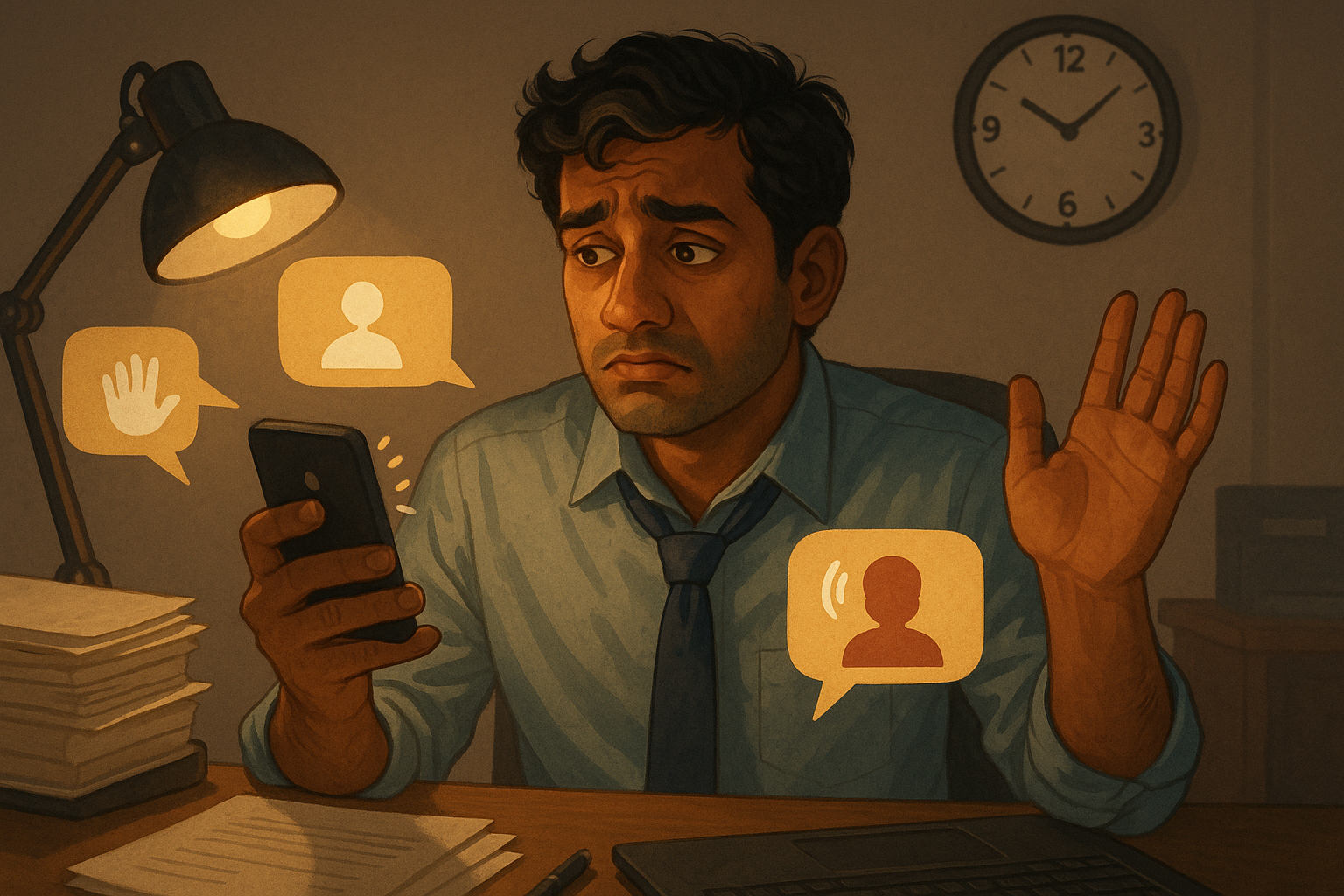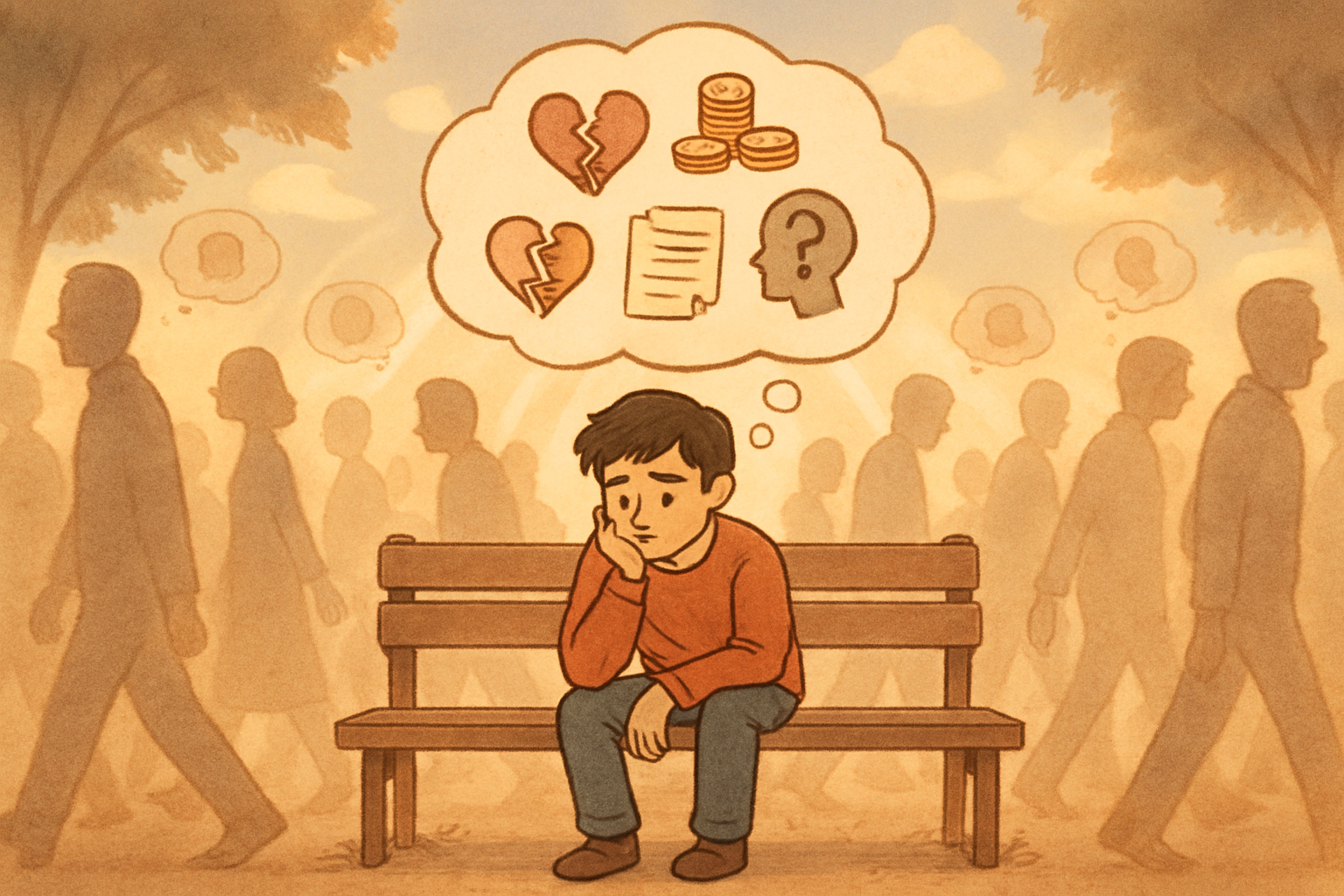Why We Can’t Say “No” — And How It’s Eating Into Our Lives😯

Ever said “yes” to a task, event, or favour… and then spent the rest of the day wondering why you didn’t just say “no”?
If you grew up in India, chances are you’ve been there more times than you can count. Whether it’s staying two extra hours in the office, helping a friend move last minute, attending a wedding you didn’t want to go to, or running errands for a relative when you’re already exhausted — saying “no” just feels… wrong.
But this habit isn’t just about manners. It’s deeply tied to our work culture, social structure, and the silent fears we carry.
Recognising the Warning Signs
You might have a “yes” problem if you:
- Feel anxious whenever someone asks you for help.
- Agree instantly, then regret it within minutes.
- Keep rescheduling your priorities to fit others’ demands.
- Often say, “I wish I had more time for myself.”
1. The Office Pressure Cooker
In Indian workplaces, especially in urban areas, there is a prevailing belief that those who stay later demonstrate greater dedication.
- Your manager asks, “Can you just finish this before you leave?” — and you agree, even if it means missing dinner with your family.
- Colleagues stay late, so you feel guilty leaving on time.
- In the back of your mind, a voice says: “If I refuse, they’ll think I’m not serious… and with so many young people looking for jobs, I’m replaceable.”
Reality check: This “yes to everything” culture burns people out and rarely leads to promotions. Often, those who manage their time effectively are respected more in the long run.
“In many Indian offices, some managers deliberately target employees who never say no — not because they’re the most capable, but because they’re the easiest to overload.”
2. The Family Obligation Loop
In Indian households, respect for elders often translates to automatic compliance.
- If a parent, uncle, or elder cousin asks you to do something — even if you’re tired, busy, or unwell — you agree instantly.
- Saying “no” feels like you’re being disrespectful or selfish.
- Over time, this builds silent resentment, but you keep doing it anyway because… well, family is family.
The problem: If you never set boundaries, family members assume you’re always available, which drains your energy and time for your own life.
3. Friends, Favours, and Fear of Rejection
We value friendships like treasure. But sometimes, we guard them so fiercely that we sacrifice our peace.
- A friend asks for help with something you can’t manage — you still say yes.
- You agree to attend events you don’t want to go to because you don’t want to be “the boring one.”
- You lend money or time you can’t afford because “What if this ruins our friendship?”
The truth: Genuine friends value your honesty. If a single “no” cracks the relationship, it wasn’t as strong as you thought.
4. Relationships: Love at the Cost of Self
In romantic relationships, especially new ones, people often say yes to everything to keep the other person happy.
- You agree to plans even if you’re exhausted.
- You take on emotional or financial responsibilities you’re not ready for.
- You avoid saying “no” because you fear it will lead to a fight or breakup.
But here’s the catch: love without boundaries leads to burnout. A healthy relationship allows space for “no” without guilt.
Why We Really Can’t Say “No”
It’s not just about being polite. It’s about:
- Fear of replacement at work.
- Fear of disrespect in the family.
- Fear of rejection in friendships.
- Fear of losing love in relationships.
In India’s competitive, community-driven culture, saying “yes” feels safer than risking any of those fears.
Breaking the “Yes” Habit Without Breaking Bonds
1. Start small.
Say no to low-stakes requests — like declining an extra cup of chai when you’re already full. It builds confidence.
2. Offer alternatives.
Instead of a flat “no,” try: “I can’t today, but I can help tomorrow.” This keeps the goodwill alive.
3. Practice the “pause.”
When someone asks something of you, don’t answer immediately. Take a breath and say, “Let me think about it.”
4. Remember your worth.
Your value at work, in family, or relationships doesn’t depend on how much you overextend yourself.
5. Build a support system.
Talk to people who understand boundaries — they’ll remind you it’s okay to protect your time.
Conclusion
In India, some people deliberately target those who never say no — protecting yourself isn’t selfish, it’s survival.
Saying “no” in India isn’t just a personal choice — it’s a cultural rebellion. It means standing up against years of conditioning that equates refusal with disrespect or laziness. But here’s the truth:
Every time you say “yes” when you mean “no,” you’re saying “no” to yourself.
The next time someone asks for your time, energy, or attention — pause and ask yourself, “If I say yes, am I okay with the cost?”
Because the people who truly value you will still be there, whether you say yes or no.









No comments yet. Be the first to comment!